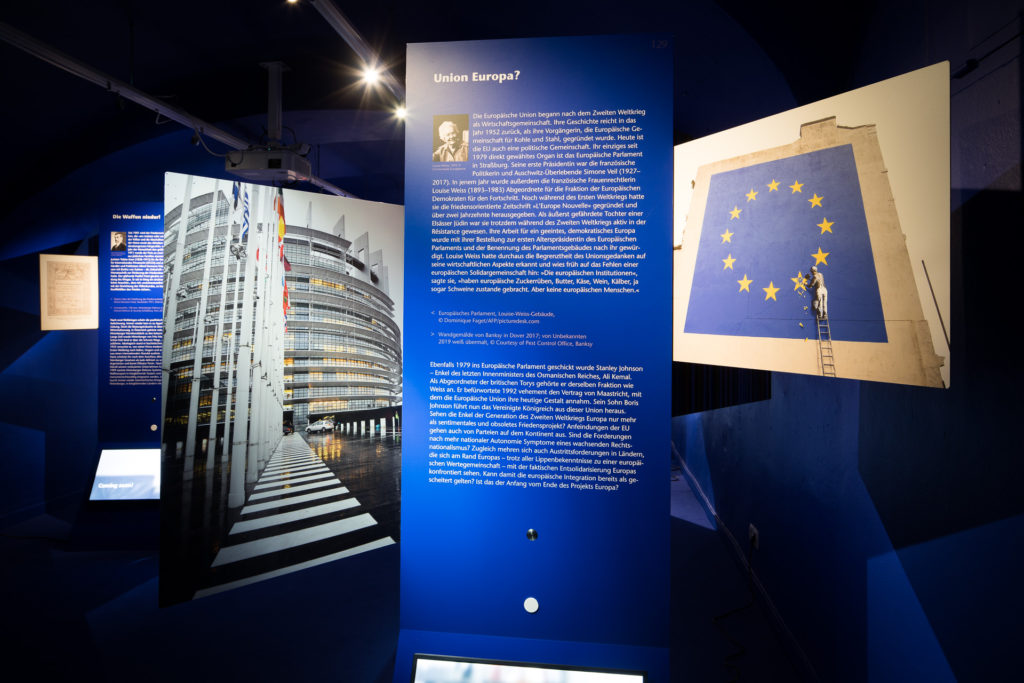
Installation Union Europe? Photo: Dietmar Walser
The European Union started out as an economic community after World War II. Its history dates back to 1952 when its predecessor, the European Coal and Steel Community, was founded. Today, the EU is also a political community. The only directly elected body since 1979 is the European Parliament in Strasbourg. Its first president was the French politician and Auschwitz survivor Simone Veil (1927–2017). In addition, that same year, the French champion of women’s rights Louise Weiss (1893–1983) became an MEP for the Group of European Progressive Democrats. Already during World War I, she had founded the peace-oriented journal L’Europe Nouvelle and kept publishing it throughout two decades. Despite being highly vulnerable as the daughter of an Alsatian Jewish mother, she was active in the Résistance during World War II. Her efforts toward a united, democratic Europe were honored by appointing her the first Oldest Member of the European Parliament and by naming the parliamentary building after her. Indeed, Louise Weiss understood that the concept of the Union was limited in scope to economic aspects, and early on, she pointed to the lack of a European community of solidarity by stating: “The Community institutions have produced European sugar beet, butter, cheese, wines, calves, and even pigs. They have not produced Europeans.”
< European Parliament, Louise-Weiss- Building ©, Dominique Faget / AFP / picturedesk.com
Also delegated to the European Parliament in 1979 was Stanley Johnson—grandson of the last interior minister of the Ottoman Empire, Ali Kemal. As MEP for the British Tories, he belonged to the same group as Weiss. In 1992, he vehemently endorsed the Maastricht Treaty, which endowed the European Union with its current form. Now, his son Boris Johnson is leading the United Kingdom out of this Union. Do the grandchildren of the World War II generation regard Europe as nothing more than a sentimental and obsolete peace project? Hostilities against the EU are also triggered by parties on the Continent. Are the demands for more national autonomy symptoms of a growing right-wing nationalism? At the same time, exit demands are multiplying also in countries at the edge of Europe that find themselves—despite all the lip services paid to a European community of shared values—confronted with Europe‘s de-facto erosion of solidarity. Is it thus already possible to consider European integration as having failed? Is this the beginning of the end of Project Europe?
